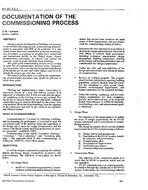Laboratory-type test data for seasonal performance factors following the DOE test procedures are analyzed. The analysis shows trends in the data among the performance in various tests and the seasonal performance factors . On the average, seasonal energy efficiency ratio (SEER) is approximately 1 .02 times the energy efficiency ratio (EER) for steady-state operation at 95 F (35°C), and heating seasonal performance factor (HSPF) for a “representative” weather region is approximately 0 .77 times the coefficient of performance (COP) for steady-state operation at 47 F (8.3°C). An average degradation coefficient, CD, inferred from the cooling mode results, agreed with the default value of 0.25. Little difference was found in performance factors when the default value of CD=0 .25 was used instead of that obtained from cyclic test data.
An uncertainty analysis was performed on the test procedure to compare trends in industry data to uncertainties in calculated values of seasonal performance resulting from allowed test tolerances. These uncertainties are noted to be in the order of 7%, and near tile scatter in the correlated data.
Citation: ASHRAE Transactions, 1985, vol. 91, pt. 1A, Chicago, IL
Product Details
- Published:
- 1985
- Number of Pages:
- 16
- File Size:
- 1 file , 1.1 MB
- Product Code(s):
- D-CH-85-2860


